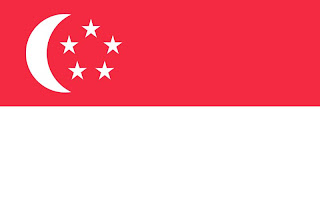 Touch is my least developed sense, my least favoured style of experience. Surprising then that my visit to New Zealand was so enjoyable. As this is a tactile world - leaving traces on people as people leave traces on the land.
Touch is my least developed sense, my least favoured style of experience. Surprising then that my visit to New Zealand was so enjoyable. As this is a tactile world - leaving traces on people as people leave traces on the land. Motifs of flora and fauna are the pins on which the story is wound. Pillowcases are embroidered with flowers so that
‘Etta sleeps with her cheek on the stitching, and when she wakes there is an impression of flowers on her skin.’
But marks are erased just as surely as they are laid. Significant parts of the novel feature extracts from Clifford’s diary, inherited and read by his son Gene as his own death looms.
‘Gene thinks of it now, decomposing in the mud, slowly covered over by thirty years of refuse. He doubts that any part of it remains; paper and cloth, he imagines, would be broken down fairly rapidly, like the soft flesh of creatures without bones.’

Moments of gentleness,
‘Thorsten tells her she has mermaid hair. He held it over her face once, and kissed her through it, and she felt like she was drowning.’
fall between recollections of exquisite destruction,
‘Mrs Hoffman is back in Dresden. Buildings are cracking like bone china. She must run to avoid the falling shards. A library smashes to the ground; pages flutter around her, shuffling themselves to form stories nobody would ever believe. She looks again, and people are cracking. Life-size, bone-china people. A man on a bicycle shatters. A girl with a dog smashes to dust. A woman in a floral dress explodes, showering Mrs Hoffman with sharp flowers.’
 A character tries to write a survival guide, to help people lost in the wild. I felt like I needed a guide, to help me filter through all that New Zealand offered me, to enable me to organise my experiences and catagorise my questions in hope of matching them to answers. But that was not Chidgey’s intention, instead she immersed me into the family and their country and I am left a little awed, a little speechless - much like one of her characters.
A character tries to write a survival guide, to help people lost in the wild. I felt like I needed a guide, to help me filter through all that New Zealand offered me, to enable me to organise my experiences and catagorise my questions in hope of matching them to answers. But that was not Chidgey’s intention, instead she immersed me into the family and their country and I am left a little awed, a little speechless - much like one of her characters.
‘The woman is waiting for an answer, but Christina’s mouth is empty. Leaves are falling onto the tables and she hears every one as it lands like a dry breath. One falls into her lap.’
the circumnavigator












